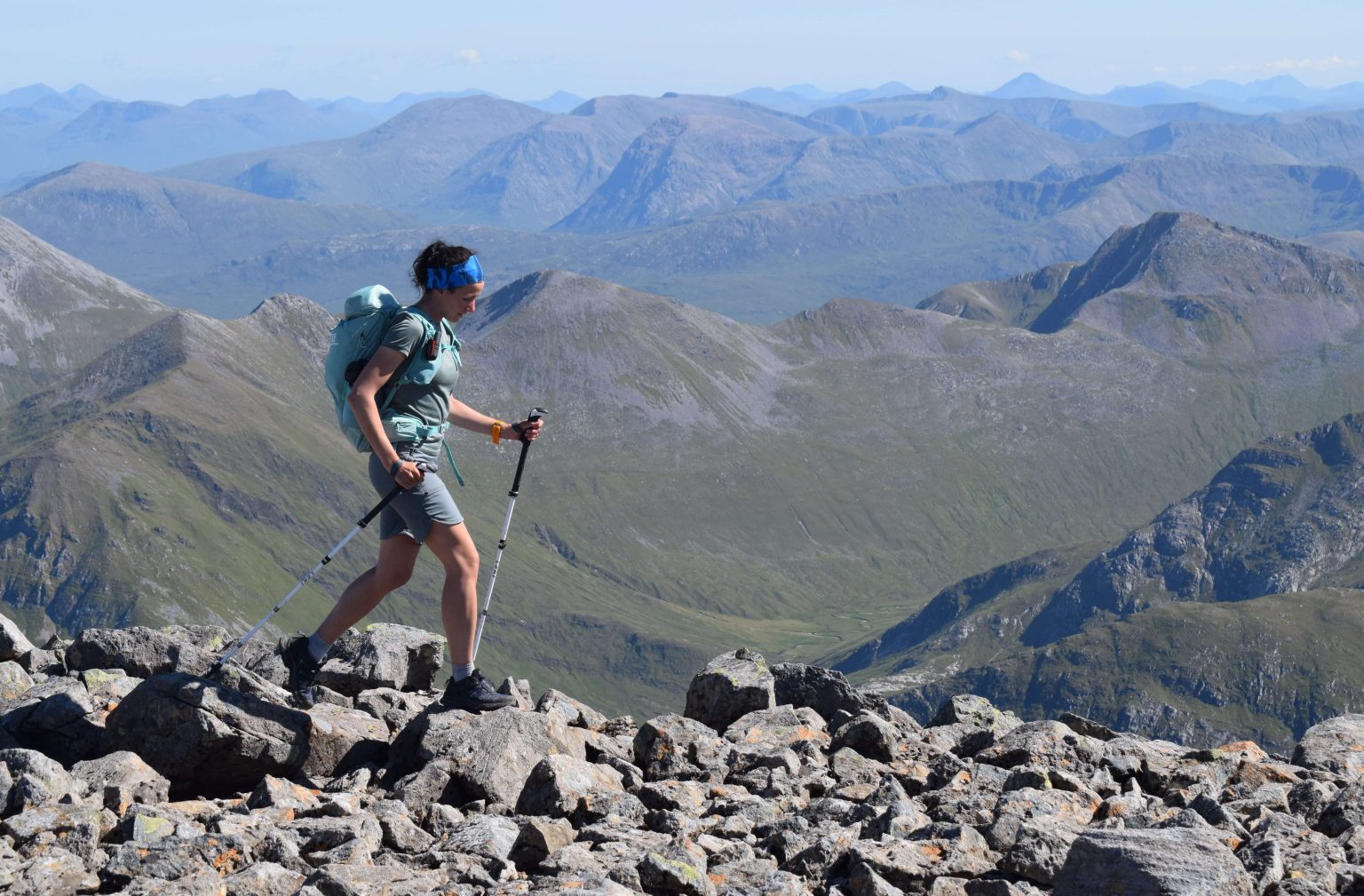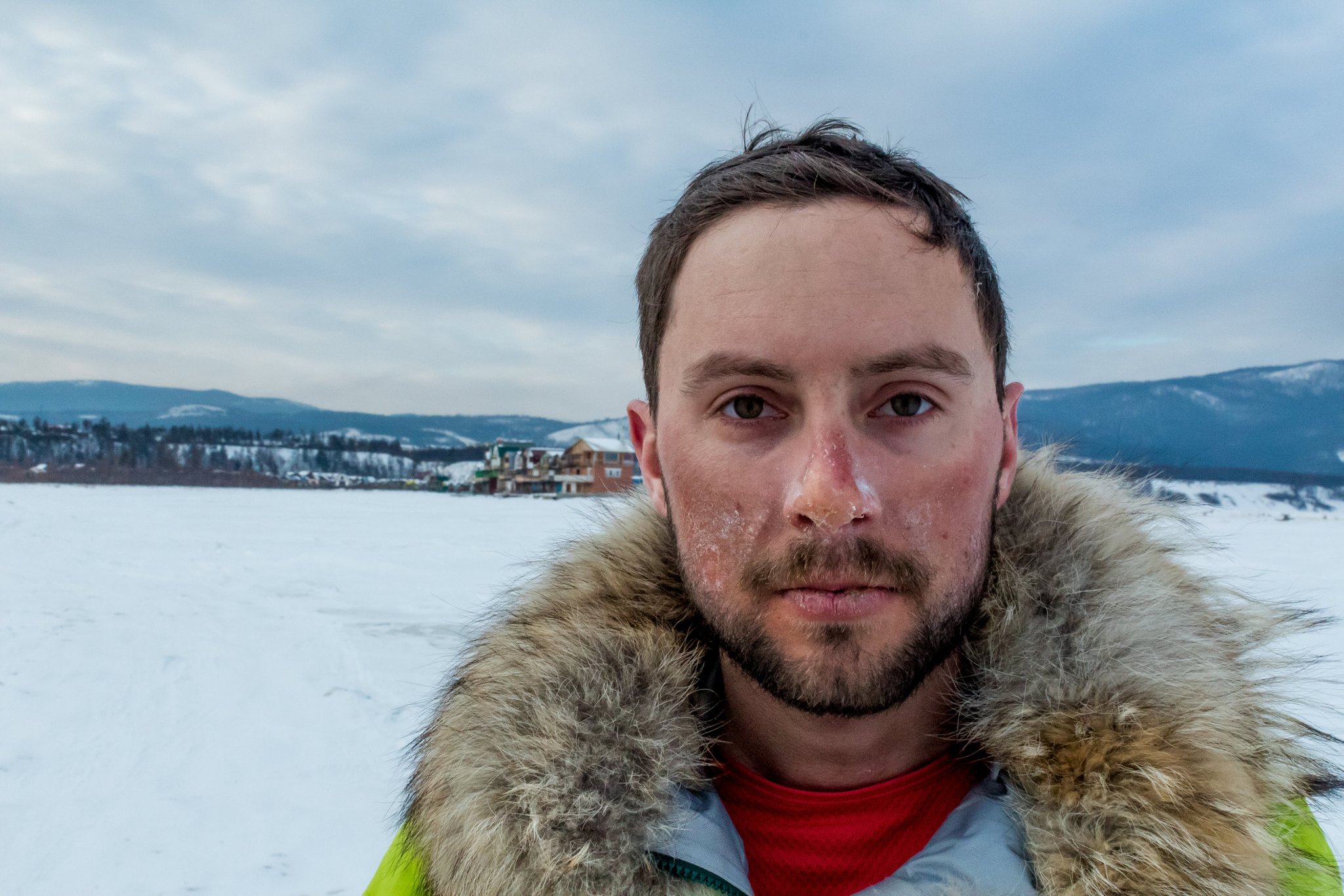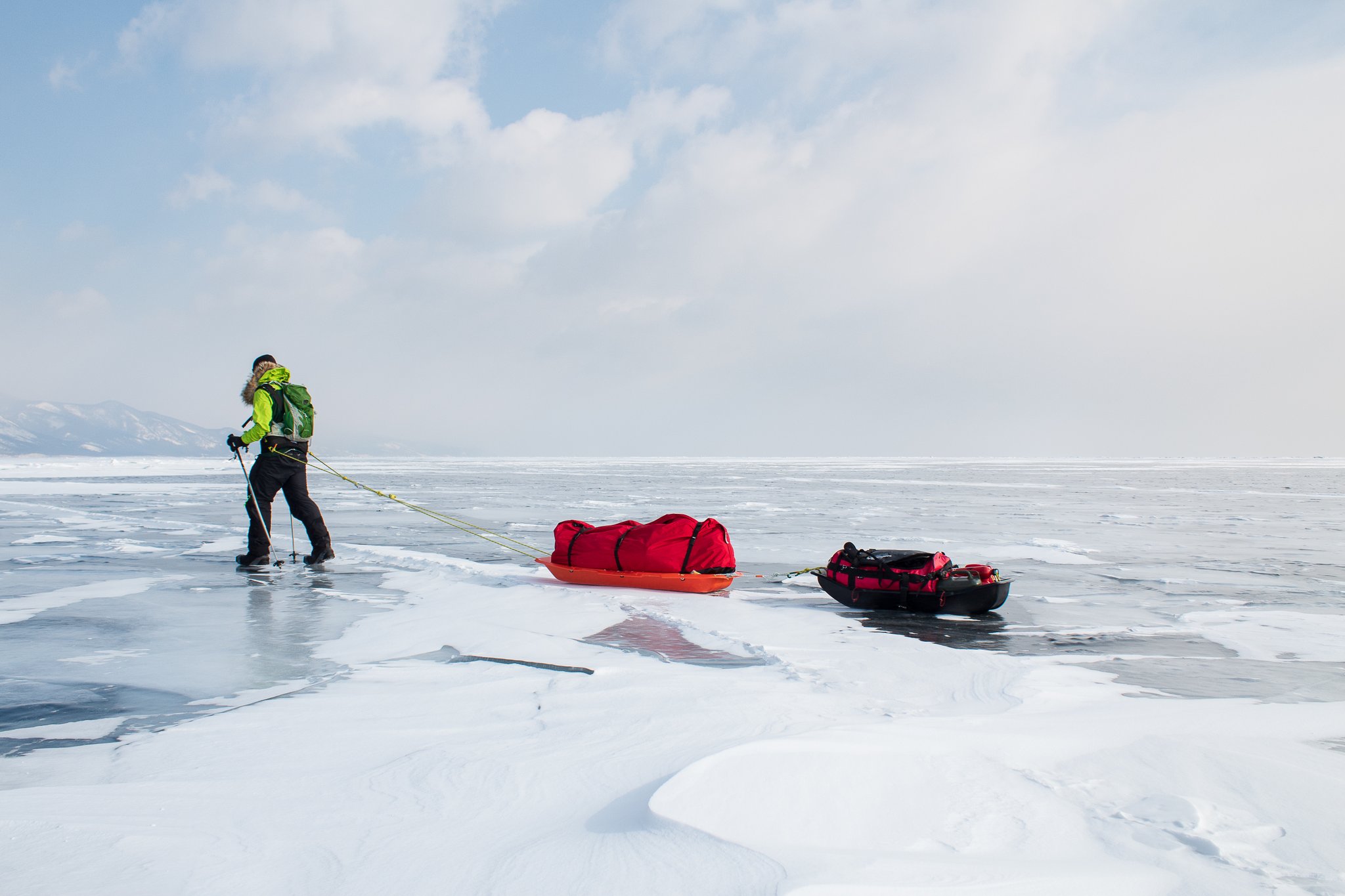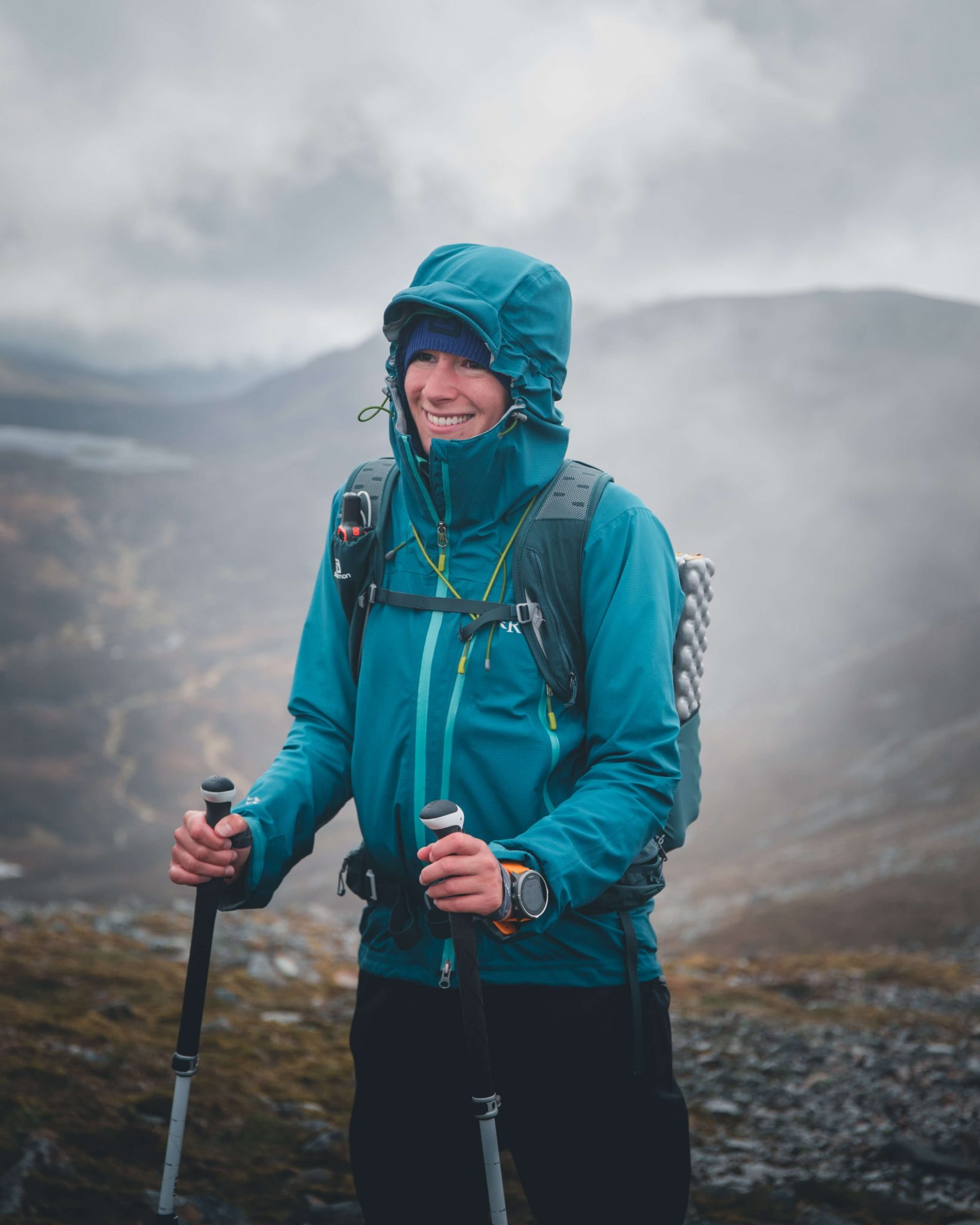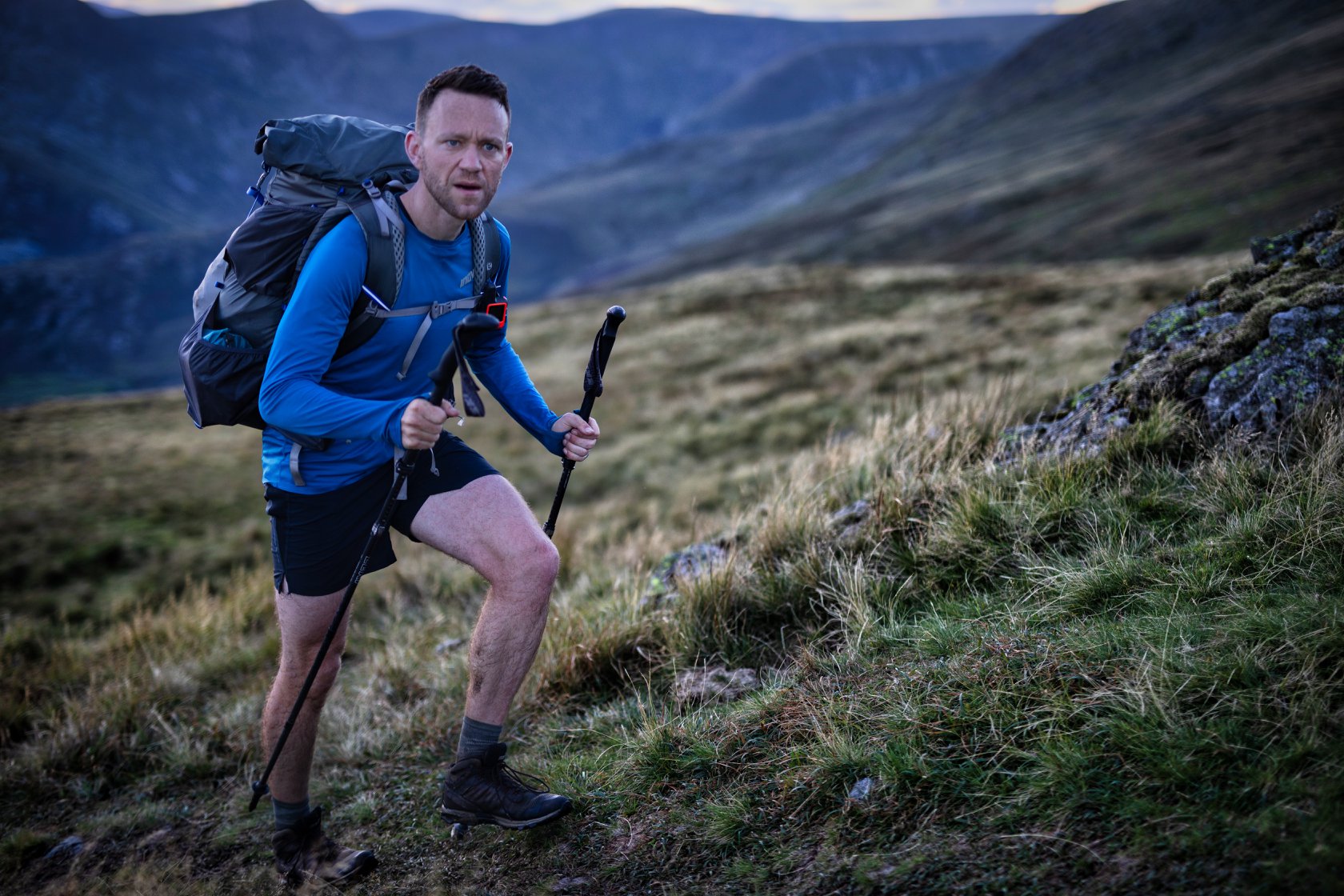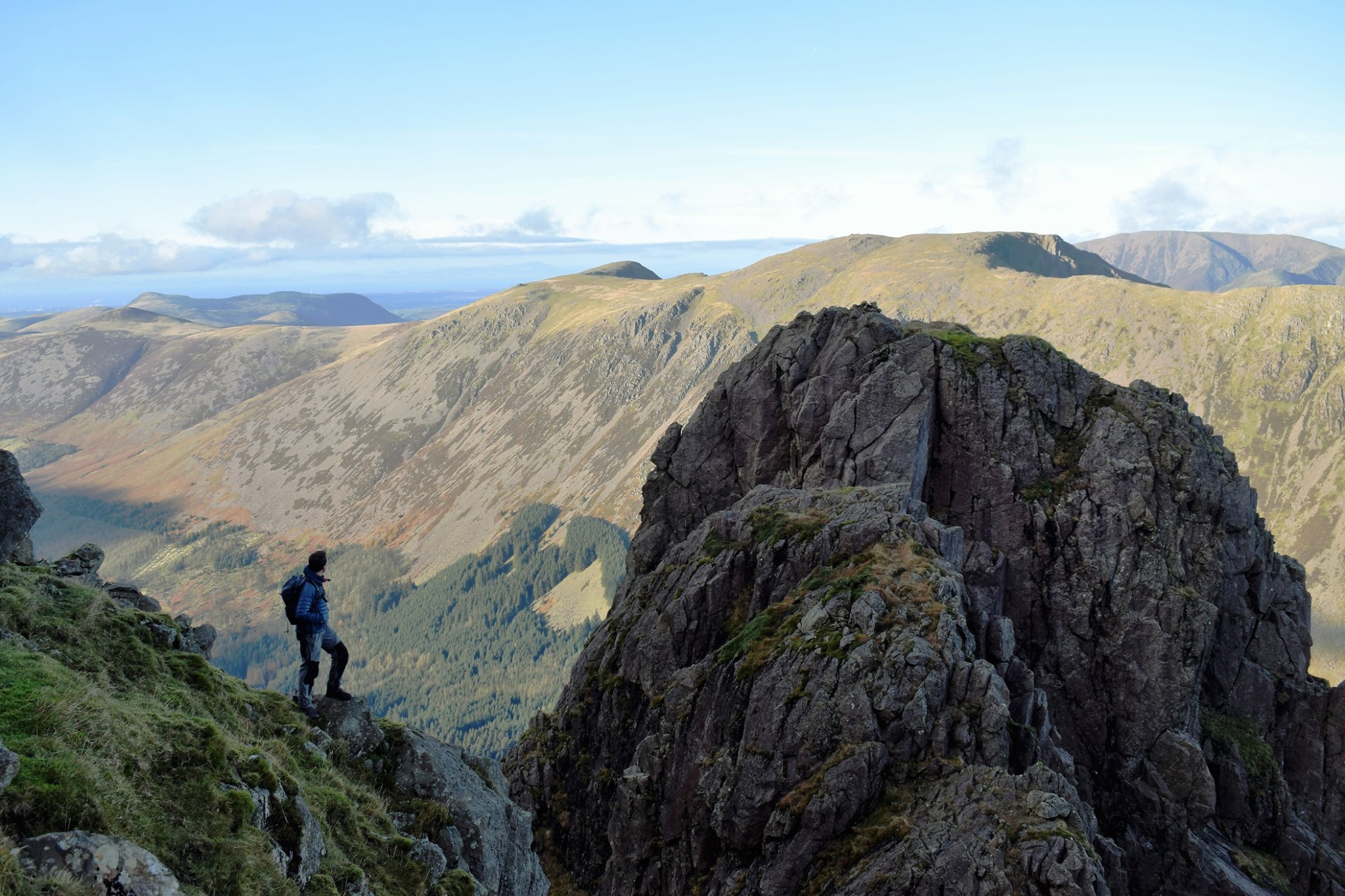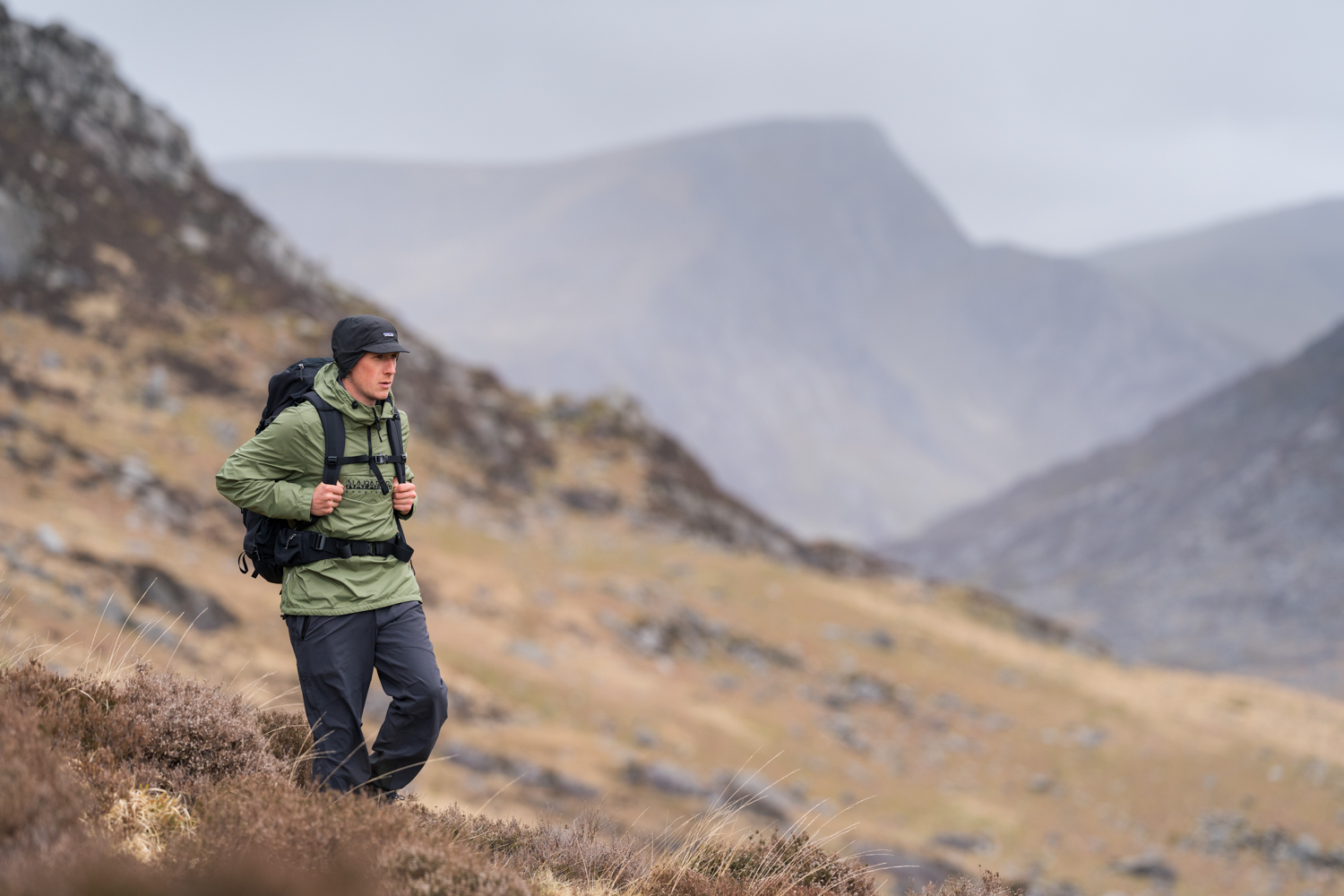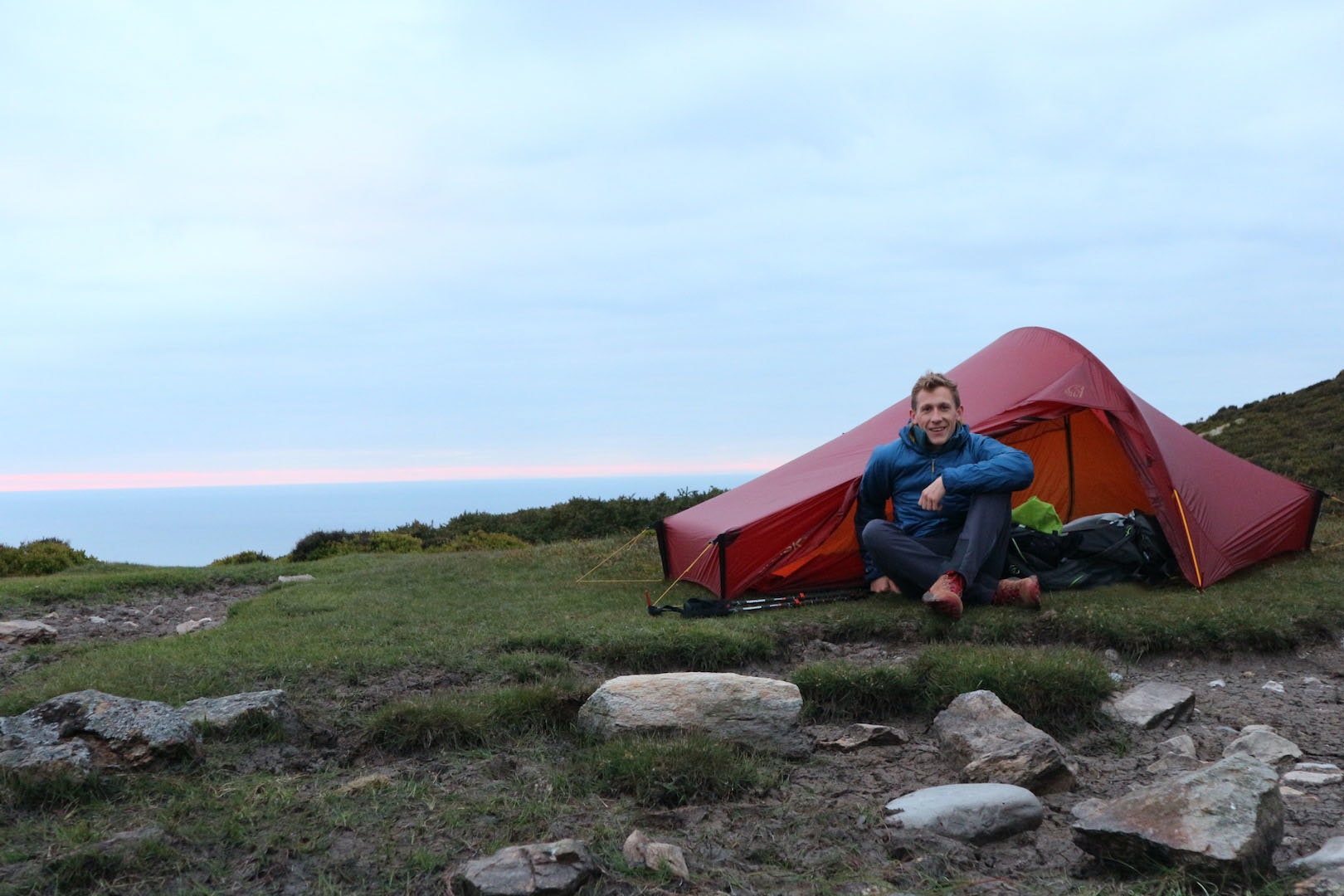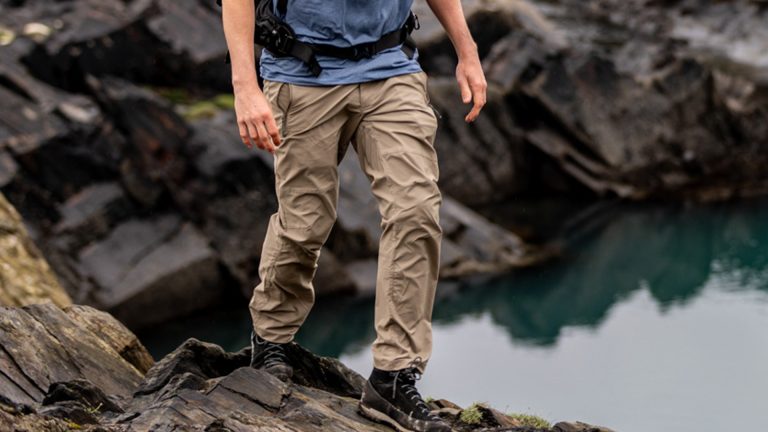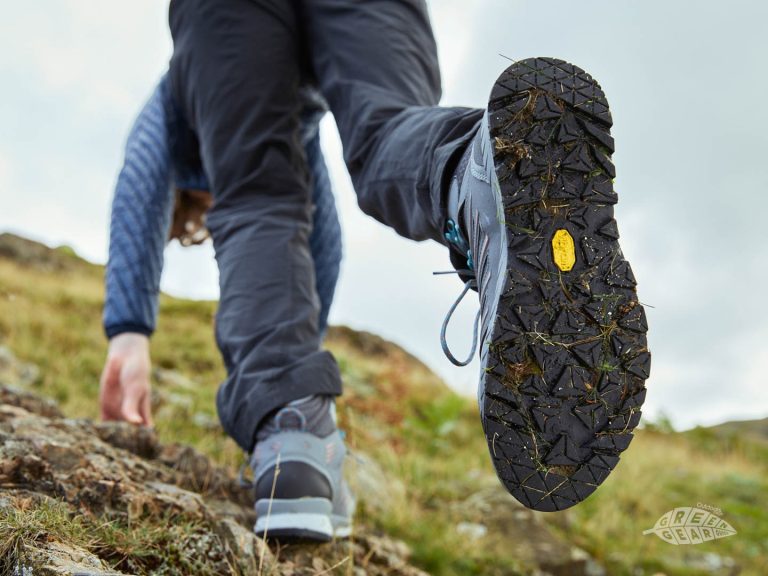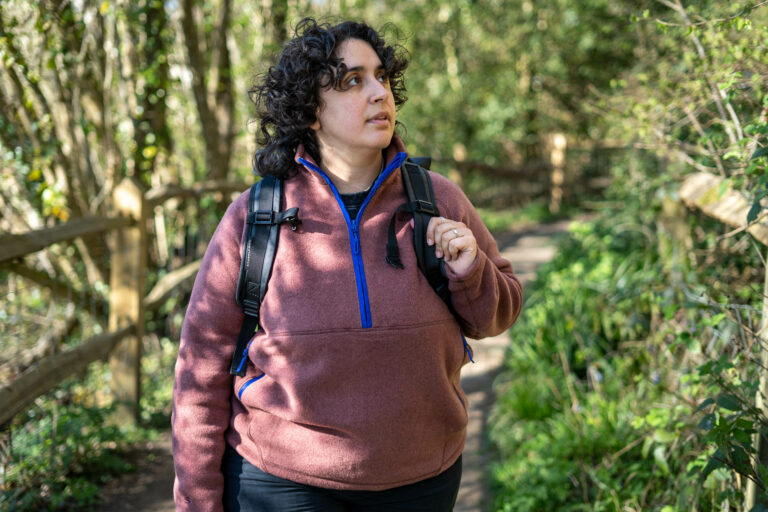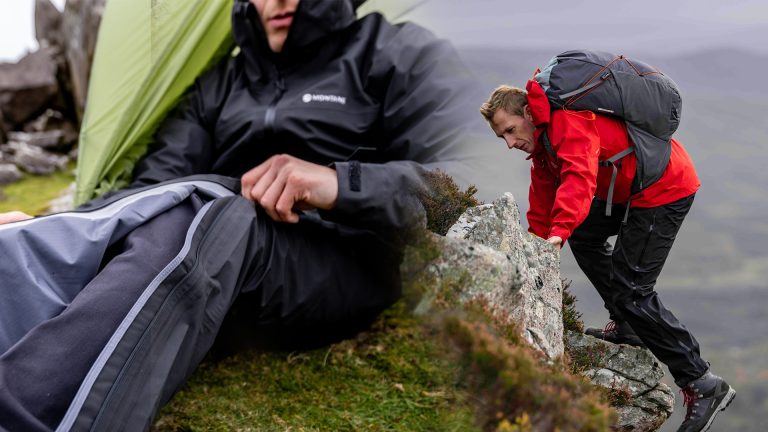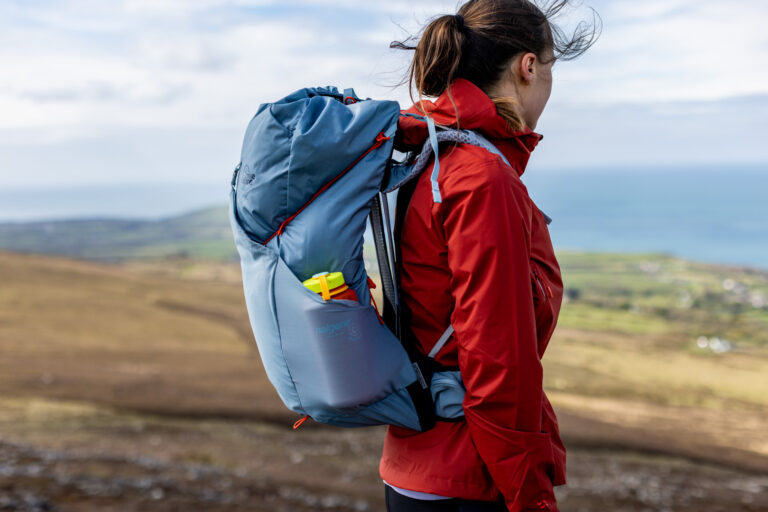“At 4am, one stormy night in the Brecon Beacons years ago when I was a novice trekker, a rough night of wild camping turned into a disastrous one. My cheap tent, after hours of howling winds and horizontal rain, finally gave up. The central pole buckled, collapsing the tent into a flimsy, spineless mess, and waking me instantly from a fitful sleep. The relatively firm ground I’d pitched on the night before had transformed into a soft, squelchy, disgusting quagmire. Basically, I was lying face down in a peaty swamp. I’d orientated the tent incorrectly to the wind, chosen a far too exposed camping spot, not taken enough pegs for guy lines, and picked an awful weather window – a litany of schoolboy errors. So, my advice would be to build your wild camping skills in advance; buy a sturdy weatherproof tent and learn how to erect it precisely and stably. That way you’ll never have to wake up face down in a swamp.”
Related: Wild Camping In The Brecon Beacons | Where To Go
Abbie Barnes
Abbie is a long-distance backpacker, trail runner, traditional archer, and wellness coach. Amongst an impressive list of other qualifications, she is also the founder and director of Spend More Time In The WILD, an organisation which seeks to inspire and empower individuals to don their walking boots and head outside for the benefit of mental and physical wellbeing.
“I started hiking long-distance when I was 16 years old, beginning with the famous West Highland Way route. Since then, I have hiked trails all over the world, carrying everything I need on my back. It has been amazing, but at times a steep learning curve. I have discovered so many things along the way. Perhaps most notably, the importance of mindset. It has often been so easy to get caught up in the planning and logistic side of things that I would forget to actually check in with myself and keep an eye on my mental health. At times I would start a trail exhausted, and then have hundreds of miles ahead of me through which I would pull myself together.
“Nowadays I have taken on board these lessons and learnings and understand that there are many ways to hike a trail. You can tackle it with a fast, light, and powerful set-up, doing as much as you can as quickly as you can. Or a slower, more mindful approach, having shorter milage-days or even just doing day hikes. I enjoy a mix of all approaches, but ensuring I jump onto a trail understanding exactly what I want to get out of it means that I can mitigate any unwanted pressure, maintain an open mind and heart, and enjoy the trail for exactly what it is; a wild adventure in a new natural and cultural landscape that can grow me on a personal level, and help me tell a story through film.”
Anna Blackwell
Anna has trekked solo 1000km across Northern Scandinavia, kayaked all across Europe, spent five weeks walking across the wilderness of Arctic Sweden alone and 1000 miles across France and Spain, to name but a few achievements. She is an adventurer, writer, photographer and speaker.
“The biggest thing I learned was how important packing is: specifically, pack less than you think you’ll need. Yes, it’s important to have the essentials, but make sure that you can justify carrying every item you pack and that each item has a purpose. A lighter rucksack is pretty much the quickest way to have a more enjoyable trek.
“Another thing I wish I knew before I walked 1,600km across France and Spain, was just how monotonous and boring long-distance trekking can be at times. I realise it’s a potentially controversial thing to say, but the reality is that some stretches can just be incredibly samey, whether that’s endless roadside paths, or day after day of poor conditions and limited visibility. You’re in for a lot of time in your own head, especially if you’re solo… Though that’s one of the challenging aspects of long-distance walking that I also find rewarding.
Will Renwick
Will is the editor of Outdoors Magic, the president of Ramblers Cymru, and an expert in all things hiking related. He has trekked the length of Spain and the Italian Dolomites, walked coast-to-coast through Scotland and circumnavigated the entire boundary of Wales, his homeland.
“The hardest days on a trek for me are nearly always the first couple, I guess mainly because it’s all a bit of a shock to the system. With that in mind, when the muscles feel sore and the task ahead is looking daunting, I just remind myself that things will get easier – and fairly quickly too. It’s actually amazing how fast your body can adjust the life on the trail. The same can be said for the mental side of things too. So I guess my advice would be to just concentrate on getting through those first hard days and stick at it, because the rewards will come.”

